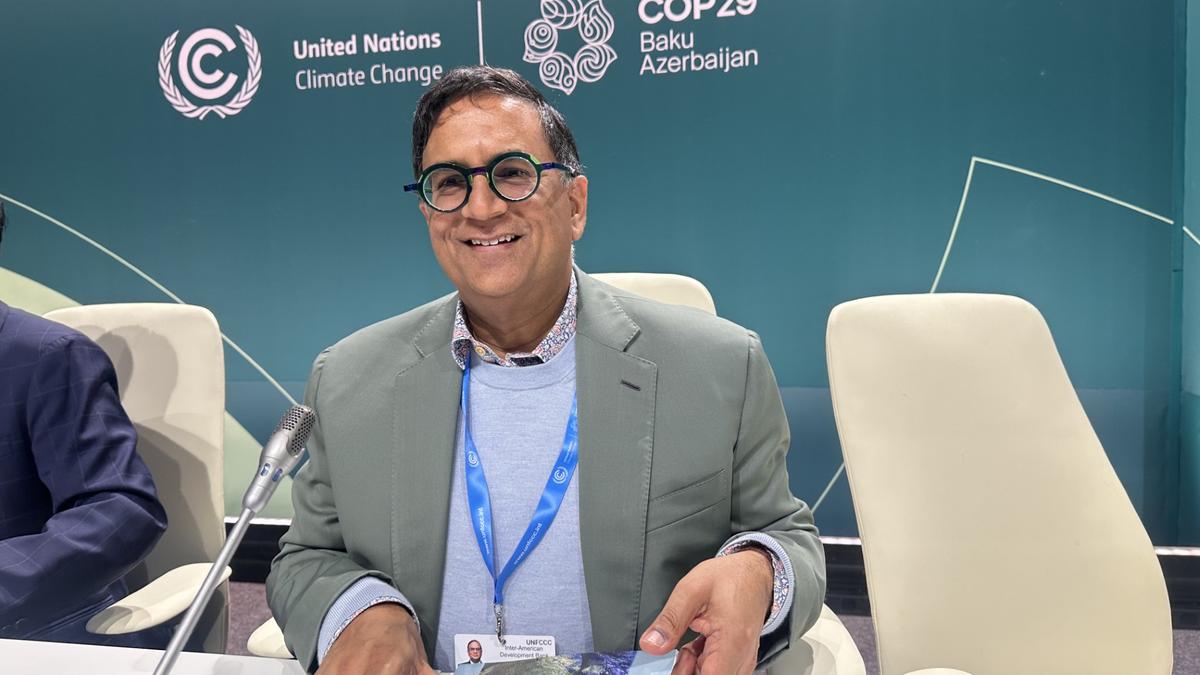
Developed nations need to triple their contribution to make climate finance credible: Avinash Persaud
The Hindu
Avinash Persaud, one of the most influential climate economists, who is at COP29 in Baku, has called upon developed countries to at least triple their climate finance commitments to $300 billion or more. If their funding is not increased sufficiently, he warns there will be no credibility and countries like India and others will not bother to raise their commitments, due early 2024, to cut emissions.
Avinash Persaud, one of the most influential climate economists, who is at COP29 in Baku, has called upon developed countries to at least triple their climate finance commitments to $300 billion or more. If their funding is not increased sufficiently, he warns there will be no credibility and countries like India and others will not bother to raise their commitments, due early 2025, to cut emissions.
Over the next 10 days that remain at COP29, nations are required by an earlier agreement to replace the $100 billion-a-year mechanism with the New Collective Quantifiable Goal (NCQG) for climate finance.
Currently, developed nations are expected to pay $100 billion a year but they haven’t stuck to agreed targets, and this system ends next year. Developing nations say they need over $1 trillion a year for a just transition to a lower-emission economy. Mr. Persaud, who is Special Advisor on Climate Change to the President, Inter-American Development Bank, spoke to The Hindu at Baku and explained his middle path which relies on using multi-lateral development banks (MDBs). These enjoy high credit ratings, which allows them to leverage every dollar they receive about 7-8 times for climate finance.
However, in a joint statement, several MDBs including the World Bank Group and European Investment Bank estimated that by 2030 their “annual collective climate financing for low- and middle-income countries will reach $120 billion…”. An accountability group, Recourse, points out in a new study that of the $125 billion climate finance raised by MDBs in 2023, almost half of it (44%) was allocated to Europe rather than more vulnerable areas like Sub-Saharan Africa (14%) and Asia-Pacific (21%). It also said that finance went to “problematic projects” including greenhouse gas-emitting and highly polluting waste-to-energy plants and captive coal; much of this was in the form of loans adding to the burden of already debt-distressed countries.
On the more contentious issue of whether developing countries which have high emissions should also increase their climate finance contribution, Mr. Persaud says the long-standing principle of common but differentiated responsibility “should allow for countries that are large emitters and becoming richer” to make contributions that are proportional. The U.S. is pressing China, currently the world’s largest polluter, to pay more; historically, however, the U.S. is the largest polluter responsible for a quarter of cumulative emissions, whereas China is 12.7% and India is 3%.
Currently one of the most contentious issues is Europe Carbon Border Adjustment Mechanism or CBAM which can affect Indian exports of over $8 billion. Mr. Persaud is advocating that India and other countries have their own CBAMs.











